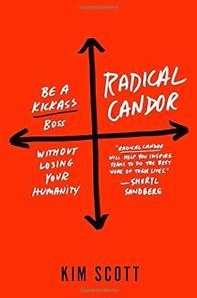
Last week I had the pleasure of attending a two day conference in my home city of Melbourne. It represented a great opportunity to hear professionals sharing their experiences and talking about the future of the world of work. I do love thinking about the ‘world of work’ and how different that will look in the future.
The changing world of work
We are already starting to see changes in workplaces and in the way that people recruit. A lot of this is driven by employees themselves, who no longer want to 9 to 5 doing the same job with the same company for decades. We are seeing the gig economy whereby employees are seeking more fixed term and contract roles, and more flexibility in their work. The gig economy gets its name from each piece of work being seen as an individual ‘gig’.
There are other terms for gig economy, and it has been called the ‘platform economy’ whereby there are app based platforms that provide opportunities for small pieces of work. Think of drivers, cleaners and people who make deliveries. Now, we have moved well beyond menial type roles, and the gig economy can include highly skilled workers, developers and designers and marketers. (See my post about Fiverr here regarding the types of skillsets being utilised).
The gig economy also applies at the executive level, such as CFOs and CTOs. It can be a good opportunity for organisaitons to bring in deep expertise at short notice when expertise is lacking.
The gig economy will also represent challenges that the legislation will need to keep up with to ensure that gig workers aren’t left behind when it comes to benefits such as leave and superannuation. There will certainly be some challenges there.
The changing world of work is certainly fascinating to me as someone who helps people to find ways to work from home, and find legitimate ways to make money online. For any of you who already have an online career from home, the gig economy will not be anyting new for you.
Anyway, back to the conference and a concept I heard about that was fascinating to me. This concept appeared in two of the presentations, and it really struck a cord with me. The concept is the model of Radical Candor.
What is Radical Candor
The term ‘radical candor’ was coined by Kim Scott in her book “Radical Candor: Be a Kickass Boss Without Losing Your Humanity”.

For a radical candor definition, it just means “care personally and challenge directly”. Radical candor is all about praise and criticism.
It is represented as a four quadrant model. The vertical axis reflects caring, or, according to Kim Scott, “how much we give a damn.” When you provide criticism, it’s critical that the receiver knows that you do care personally. The horizontal axis represents challenging directly. Kim Scott also calls this axis the “be willing to piss people off” axis. Leadership often results in pissing people off. When guidance is great, it is ‘radical candor’. In the context of leadership, It’s your moral obligation as a boss to challenge directly, in conjunction with personally caring, in order to help people.
The Radical Candor Model
Here is the model of radical candor:

The link between Radical Candor and Sex and the City
Do you remember the line that got turned into a movie – “He’s just not that into you”? The line was from an episode of Sex and the City, where MIranda is describing a date she went on, and the girls are affirming that her date is interested and will call her. Carrie’s boyfriend (Berger) is asked what he thinks, and he says “honestly, the guy is just not into you”. Miranda’s friends are mortified and embarrassed, but Miranda is not. In fact, she wants to know more. Berger goes on to explain from the male perspective what men do if they are interested. For Miranda, this is the revelation that she needed to move forward. The line also inspired much discussion on Oprah.
In my mind, that’s an example of radical candor, when done with personal care, said between friends. It is a line that whilst it is very direct and potentially upsetting, when done with personal care is said with the intent of saving someone from pain and embarrassment. The line provided clarity when there was ambiguity.
When we don’t have Radical Candor …
When we don’t have radical candor, what do we have? Let’s have a look at the other quadrants of the model.
Obnoxious Aggression
WIth obnoxious aggression, you are basically a jerk. This is when you challenge directly, without the caring personally component. This helps NO ONE.

Manipulative Insincerity
Here, think about a leader who goes on a ‘listening tour’ to hear about what people like and didn’t like. This is done to appear that they care and will make change. However when it is done with no care and no direct challenge, it is grand standing. No one wins in this situation.
Ruinous Empathy
This is when no direct feedback is given, but there is a high level of care. Think about when you care for someone, but can’t bring yourself to give them the feedback they need. You may know that there is an issue, but you don’t have the heart to tell them. When things blow up, this is where they may say to you “Why didn’t you tell me?” and “Why didn’t ANYONE tell me, I thought you all liked me”. In this case, praise gives false reassurances. It might make YOU feel better, but it doesn’t help the other person.
Ruinous empathy can also play out when people come to you moaning about what’s going on. Even if you don’t agree with what they’re saying, you’ll listen and nod and agree to give them affirmation. When several people are coming to you talking about each other, playing go-between is toxic and should be avoided.
You can buy the book, Radical Candor: Be A Kickass Boss Without Losing Your Humanity”, here:
Things you can do
To introduce radical candor into your workplace, and to generate a culture of open and honest discussion done with care and compassion, there are some thing you can do.
1. Impromptu guidance
Explain this model to people in your team. Put it up on the wall, and ask people to give you feedback about where you are on the model based on your feedback to them. People will be clear with you about the kind of guidance you are giving them. When you’re open to have your guidance be raided by your people, just having the visual will push you towards radical candor.
2. Make back-stabbing impossible
Back-stabbing is an unproductive culture killer. Making back-stabbing impossible is important to foster a culture of guidance. Encourage people to talk directly to each other. Some advice you can give to people who want to back-stab to you about each other is to say something like “If you can’t work it out I’ll help you work it out, but come to me together, not separately.” This shows care, and it provides the clear message that won’t be participating in back-stabbing behaviour.
3. Make it easier to speak truth to power
People need to be able to raise issues. Have feedback sessions where you listen.
4. Put your own oxygen mask on first
You can’t give a damn about others if you don’t give a damn about yourself. You need to take good care of yourself.
Here is a short four minute video to briefly explain radical candor model:
So what does the changing world of work have to do with Radical Candor?
With the workforce now significantly changing, with more people working from home than ever before, and with more roles being short term, we need to think about the way we engage with people and have good discussions.
Radical candor doesn’t just apply in a work context, and between leaders and employees. I think this model has much broader application outside of the work context. I think this model is something we can use in every day life when we are having conversations with people we care about. When we genuinely want the best for others, and when we want to see them grow and flourish, radical candor is the thing we need.
As always, please leave me a comment or a question and I’m happy to help. Do you use radical candor?



Interesting. I hadn’t heard of radical candor before. I think I use it with my family and loved ones, but am very cautious about using it with people I barely know who could take it the wrong way.
Hi Melinda, I found it interesting too. I think it’s definitely something that you need to pick the right situation and moment for : )
Thanks for stopping by,
Cheers
Melissa
Hi Melissa . I did use radical candor in my years working at management level in banking. Only in my days that expression wasn’t heard of, I guess we just called it ‘ being a boss who had empathy with employee’s, but remained the person in charge’.
I wish this information had of been around in book form in those days, I would have waved it underneath the noses of those in Management above me. In my younger days I was taught to use the ‘Get blood out of a stone’ technique, only I refused to use it. My staff respected me and I respected them, but this was seen as a weakness back then. Even when it got the best results.
I could go on, but I would have to write a book. Thanks for your extremely informative article.
Jim
Hi Jim,
I can only imagine how useful that skill would have been through all of your years in management within the banking industry! It’s a shame that empathy has previously been sign as a weakness. Thankfully management thinking has evolved and it’s now seen as an important skill to have, in fact a skill that drives improvement and can increase the bottom line.
Thanks for your thoughts here Jim, I really appreciate you stopping by.
Cheers
Melissa
I have never heard of radical candor! It seems very useful in the workplace and should be incorporated more often! Feedback is always essential : ) Thanks for explaining it so well!
Hi Danielle, I totally agree! Feedback is so important, and when done with care to help someone improve it is very valuable. Thanks for sharing your thoughts here.
Cheers
Melissa
Hi there Melissa, great post on this Radical Candor. I have never heard of this term before, but it is completely true. You have to treat people the way that you would want to be treated, but at the same time, you have to lay down the necessary truth when need be. Thanks for the post.
Hi Evan, you’ve articulated that very well. Thank you! And thanks for stopping by and sharing your ideas here.
Cheers
Melissa